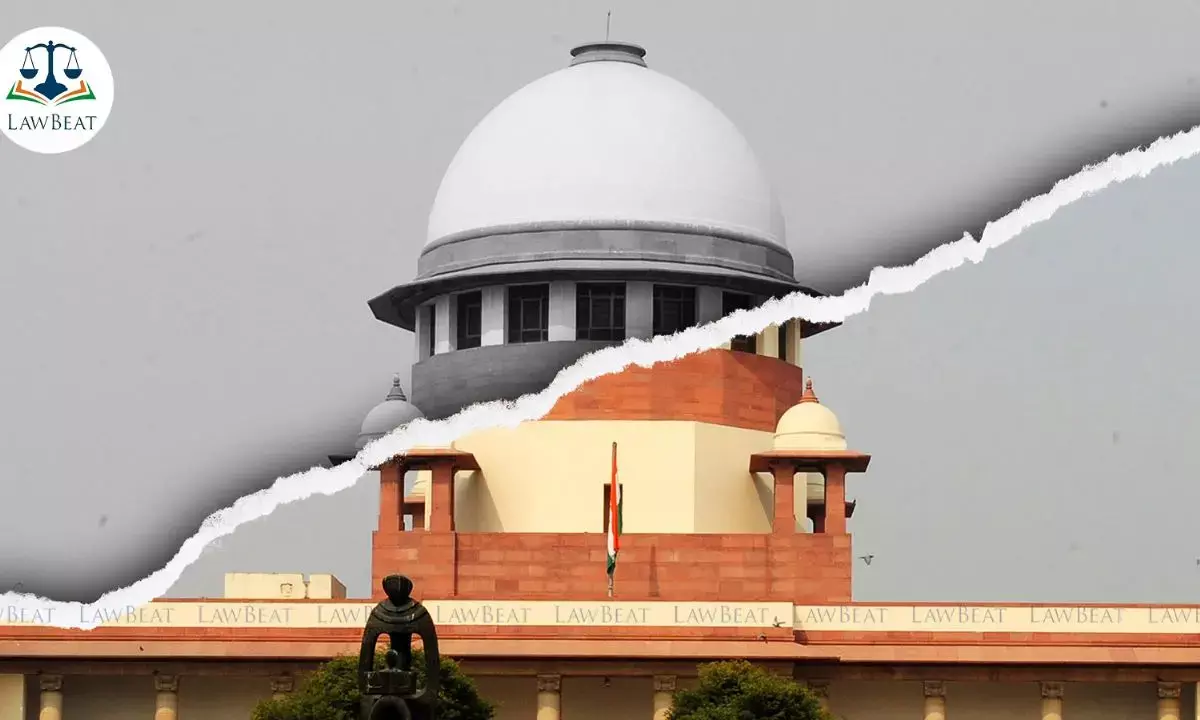'No vestige of matrimonial relationship,' SC dissolves marriage on payment of Rs 1.25 Cr as permanent alimony

Supreme Court rules that filing a second SLP against the same High Court order after dismissal of an earlier petition is abuse of process and violates finality in litigation
Can a marriage survive after 15 years of separation, failed mediation, and one spouse already remarried? The Supreme Court has answered with a firm no, dissolving a 2009 marriage that had completely collapsed, and directing the husband to pay Rs 1.25 crore as permanent alimony. The Court declared there was “no vestige of matrimonial relationship” between the parties and continuing the legal bond served no purpose.
The marriage between A Renjithkumar and E Kavitha was solemnised in February 2009. The couple relocated to the United States, where their son was born in 2010. But happiness was short lived. Within a year, disputes erupted and by 2010 the spouses were living apart. In 2012, the husband moved for divorce alleging cruelty and adultery. While the Family Court in 2016 granted him divorce on the ground of cruelty, it found adultery was not proved.
The wife challenged this before the Madras High Court. In 2018, the High Court overturned the decree, holding that the finding of cruelty was unsustainable since the alleged rude remarks came from the wife’s father and not the wife herself. The legal battle dragged on for years, but by then the couple’s relationship had broken beyond repair. Mediation efforts failed repeatedly and in 2017, the husband contracted a second marriage.
By the time the matter reached final hearing in the Supreme Court, both sides had accepted that there was no chance of reconciliation. A bench of Justices Vikram Nath and Sandeep Mehta noted that the parties had been estranged for nearly 15 years, all negotiations had collapsed, and the husband had already remarried. In these circumstances, the Court said, there was “no purpose in continuing the legal relationship between the parties.” Invoking its extraordinary powers under Article 142 of the Constitution, the Court held that the marriage had irretrievably broken down and must be dissolved.
The judgment did not end with divorce. The Court turned to the question of financial support, noting that the husband had not provided for his wife and son during the long years of separation. To ensure justice, the Court ordered him to pay a one time lump sum of Rs 1.25 crore as permanent alimony. This amount, the Court said, would settle all pending claims. The sum is to be paid in five equal quarterly instalments of Rs 25 lakh each, starting September 2025.
The Court made it clear that once the alimony is paid, neither party can raise further financial demands. The bench emphasised that while the marriage was being dissolved in favour of the husband, the financial security of the wife and child must also be protected.
This ruling is a textbook case of the Court using its Article 142 powers to break through years of deadlock. The apex court noted that the couple’s marriage existed only on paper for over a decade. The husband had built a new life, while the wife continued to face uncertainty due to the pendency of litigation. By granting divorce and awarding a substantial settlement, the Court sought to give closure to both sides.
The case highlights the human cost of prolonged matrimonial disputes. What began as a hopeful marriage in 2009 spiralled into separation in 2010, litigation in 2012, a Family Court divorce in 2016, reversal by the High Court in 2018, and finally Supreme Court intervention in 2025. For 15 years the parties remained locked in a bitter battle, but the Court has now drawn the curtains with a definitive settlement.
The ruling also illustrates the evolving judicial stance on irretrievable breakdown of marriage. While not yet a statutory ground under the Hindu Marriage Act, the Supreme Court has repeatedly invoked its constitutional powers to end marriages that exist only in name, emphasising that forcing estranged parties to remain tied together legally is unfair and purposeless.
The judgment sends a clear signal: where there is no possibility of reunion and the relationship is beyond salvage, the Court will not hesitate to dissolve the marriage and secure financial justice for the spouse and child left behind.
Case Title: A Renjithkumar Vs E Kavitha
Judgment Date: August 14, 2025
Bench: Justices Vikram Nath and Sandeep Mehta
